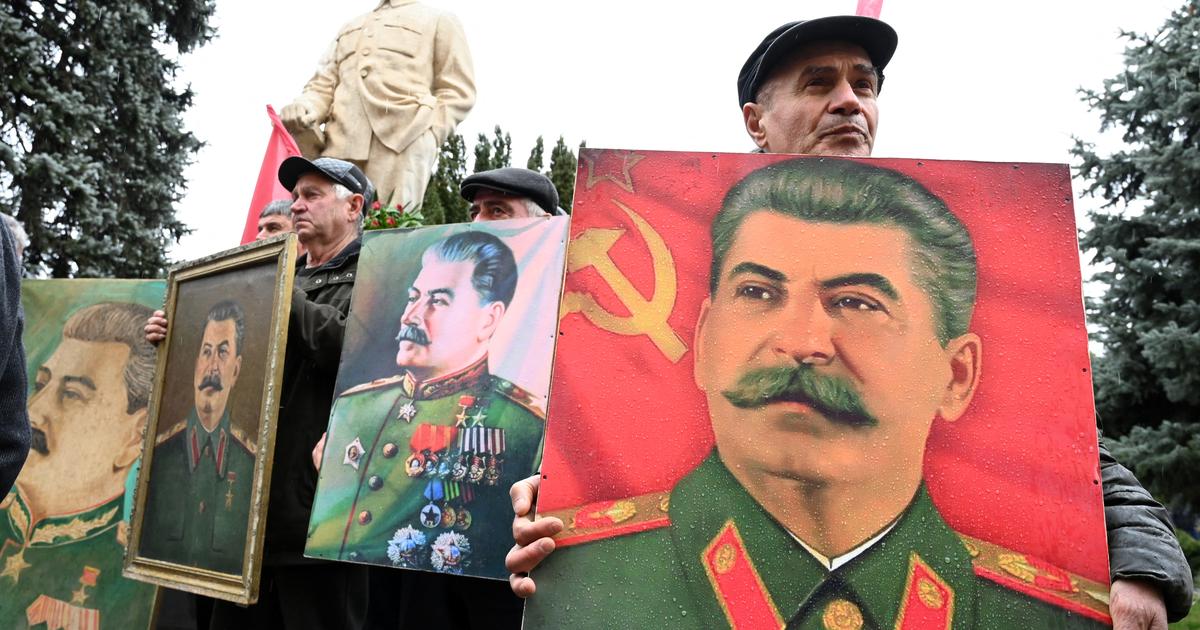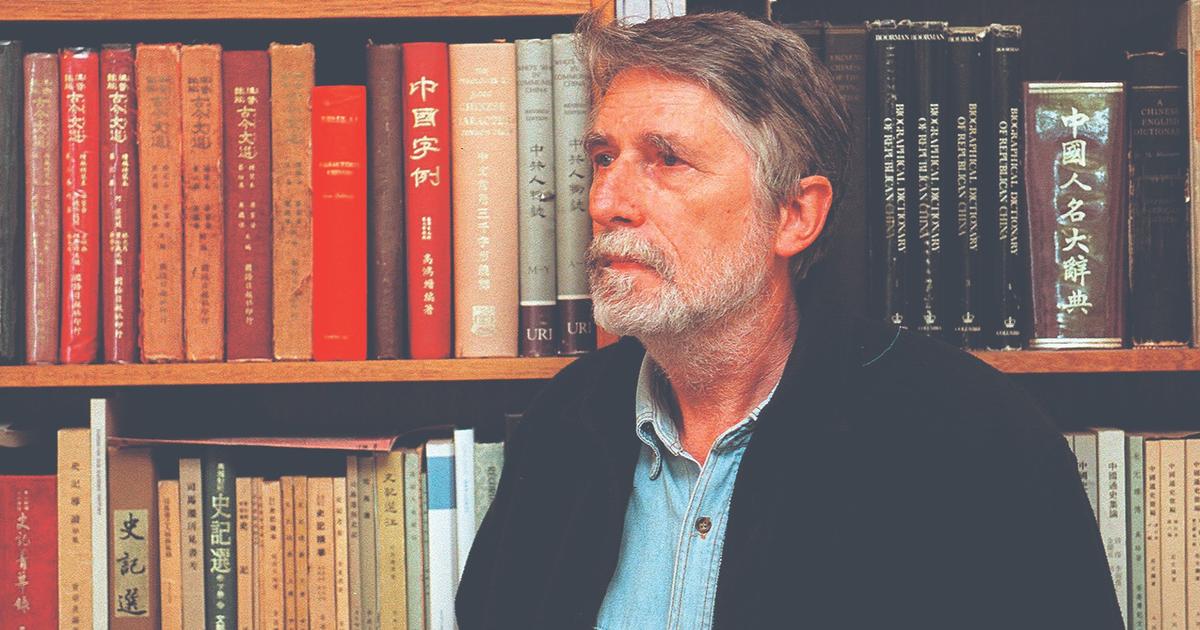Mao Zedong: Life, Political Career and Cultural Significance of the Communist Dictator.
Mao Zedong is one of a handful of communist activists who founded a small party cell 100 years ago.
This party has ruled all of China for a good 70 years.
Mao led the party through two civil wars and proclaimed the People's Republic of China in Beijing in October 1949.
The Chinese Communist Party now resides in an isolated historical complex called Zhongnanhai right next to the old Imperial Palace, the Forbidden City, in Beijing. Mao already resided in the complex. From there he set up a communist social order and drove industrialization forward with sometimes brutal methods such as the catastrophic “Great Leap Forward”. The party leadership also repeatedly cleared political opponents and had them rigorously persecuted. In the 1960s, Mao felt cornered by criticism from within the party and kicked off the “Great Proletarian Cultural Revolution” that plunged China into chaos for ten years. It was only after Mao's death in 1976 that the country embarked on a path of modernization under his successors.
Mao is blamed for up to 80 million deaths: The "Great Leap" led to a huge famine, and many Chinese were also killed during the turmoil of the Cultural Revolution.
Despite everything, Mao still enjoys a certain cult status in China as the founder of the state, because after a century of humiliation by foreign powers he is considered the founder of an independent China.
Mao's face has been emblazoned on every banknote since the beginning of the millennium.
The mantra has prevailed that Mao's actions were “70 percent good and 390 percent bad”.
Mao Zedong - Childhood and Adolescence in the Chinese Empire
Mao Zedong was born on December 26th, 1893 into a wealthy farming family in Shaoshan in the central Chinese province of Hunan. His parents had a total of seven children; little zedong survived as one of only three. As a teenager, Mao attended many different schools and sometimes experienced discrimination there because of his rural origins.
Mao's youth fell into the time of the empire, which only ended with the abdication of the last Manchu emperor in 1911.
The empire was deeply shattered at that time.
The ruling Manchurian Qing dynasty was corrupt and incapable of leadership;
the country and large parts of its inhabitants suffered from dramatic poverty.
Foreign powers - including Great Britain in particular, and later in particular Japan - posed a constant threat to China. Mao soon developed an aversion to the imperial dynasty and in 1911, at the age of 18, joined a protest march against the emperors.
A little later, the imperial dynasty finally came to an end, and China became a republic for the first time.
Mao Zedong - Development towards Communism
Due to the constant threat to China from capitalist foreign states, some Chinese reformers and revolutionaries came to the conclusion in the early republic that only a communist social order could solve the country's problems.
Mao Zedong was one of them.
He had already dealt with communist literature during his school days and was supported by his teacher Yang Changji (* April 21, 1871, † 1920), among others.
As a student, Mao repeatedly organized and participated in political actions.
Among other things, he founded a communist-influenced student newspaper, which caused such a sensation that it was banned by the nationalist government.
In 1921 he and a few other revolutionaries finally founded the Chinese Communist Party.
Mao Zedong - communists and nationalists after 1911
The great antagonist of the communists at the time was the nationalist Kuomintang party (KMT).
Under Sun Yat-sen, the KMT had pushed for the end of the imperial dynasty;
it established the first republican government in China.
However, even the KMT could never completely unite the country, among other things so-called warlords in the north of the country pursued their own agenda.
At that time the KMT and communists worked together again and again in their desire to build a functioning republic.
Under Sun's successor Chiang Kai-shek (* October 31, 1887, † 1975), however, the KMT moved to the right.
This increased the conflicts with the communists.
There were power struggles within the alliance system between the Kuomintang and the CCP, which increasingly led to violent clashes.
The KMT then provided the government in the city of Nanjing, and Chiang had more and more communists persecuted, imprisoned and murdered.
Mao Zedong - Chinese Civil War and Long March
As a result, civil war finally broke out between the two parties in 1927.
This conflict was to last for over 20 years and have far-reaching consequences for China.
The KMT fought the communists, whose fighters had to regroup again and again and finally largely withdrew from the cities.
A high point of the war was the so-called "Long March", an escape march by the communists from the hill area of Jinggangshan to Yanan in the barren north of the country.
For more than two years from 1934 onwards, the communists wandered through impassable terrain in western China, repeatedly under attacks by the KMT army.
The Long March claimed thousands of lives.
Although only about a tenth of the 100,000 people who set out initially survived, the “Long March” was later considered the basis for a heroic myth about Mao.
Mao finally sat at the head of the party during the march in a conflict over the right tactics.
Mao Zedong - political advancement
In 1937 the alliance between the CCP and the Kuomintang was renewed. The reason for this was the Japanese attack on China, which threatened the entire country. The common enemy for a time covered up the conflicts between the parties. Mao Zedong, meanwhile, continued to build his position of power within the CCP and was finally officially elected party chairman.
After the US atomic bombs on Hiroshima and Nagasaki in 1945, the Japanese military operation collapsed.
Tokyo surrendered and withdrew completely from China.
The military conflict with Japan had weakened the nationalists so much that the communists gained the upper hand in the civil war that flared up again.
During the war against Japan they had built up a guerrilla in rural areas that they are now using against the KMT army.
When it became clear that the communists would win the civil war, Chiang Kai-shek fled with the remaining KMT troops to the island of Taiwan.
There he founded the Republic of China, which he ruled with a hard hand until his death.
On October 1st, 1949, Mao Zedong founded the Communist People's Republic of China on the mainland.
Mao Zedong - Policies and Campaigns
After taking power, Mao Zedong took numerous political measures to reorganize the communist economy and society.
In doing so, he repeatedly relied on campaigns and a revolutionary political style - which in some cases had catastrophic consequences.
Land reform
(1949-1952)
Hundred Flower Movement
(1956-1957)
The Great Leap Forward
(1959-1962)
Cultural Revolution
(1966-1976)
With the land reform, the communists redistributed land ownership - with the aim of giving the land of rich landowners to small farmers. Rich landowners were expropriated and their land was given to the poor peasants. It was a fundamentally social idea, but when implemented it led to acts of violence and death among the population. Because Mao Zedong stirred up the hatred of the disadvantaged small farmers against the landowners and urged them to use force to acquire land if necessary. In many cases, former large landowners were killed by poor farmers. Later all of the land was nationalized; all peasants were grouped together in people's communes, which they farmed together as workers.
With the Hundred Flower Movement, Mao called on the Chinese people to express political opinions freely and to criticize the political system. However, when more and more critical voices against Mao himself and the party became loud, the initiative quickly turned into the so-called “anti-right deviator campaign”. Those who criticized Mao were now labeled “deviants”, persecuted by the government, imprisoned, deported to labor camps or murdered.
The "Great Leap Forward" was a campaign to industrialize China. Instead of farming, the Chinese farmers were to only produce steel from 1959 and thus make the country competitive with the other industrialized countries of the world. Among other things, Mao wanted to overtake the Soviet Union as quickly as possible. However, this attempt to force an industrial upswing failed miserably. Due to the work in steel processing, the farmers could no longer cultivate their fields sufficiently, which ultimately led to the greatest famine in human history. The death toll is estimated at up to 45 million people today.
In the midst of this catastrophe, Liu Shaoqi (* November 24, 1898, † 1969) became president. However, Mao continued to lead the Chinese Communist Party and thus had a great influence on political events. In the sixties he started the "Great Proletarian Cultural Revolution" to get rid of critics within the party. This led to violent clashes between the different social classes and to unprecedented chaos. Schools and universities closed because young people were sent to work in the country - or terrorized the country as "Red Guards" on behalf of Mao. Children denounced their parents, neighbors denounced each other, various groups of Red Guards fought violently.
During the turmoil, Mao turned against self-appointed Liu, who eventually committed suicide while in custody.
Lin Biao, who was then chosen as crown prince, also died in a mysterious plane crash.
Mao's wife Jiang Qing gathered around her three extremists who, as so-called “four gangs”, repeatedly launched new radical campaigns.
Only with Mao's death in 1976 and the imprisonment of the "Gang of Four" did the situation calm down.
Mao Zedong - Wives, Children and Legacy
Mao Zedong was married four times and had a total of ten children with his last three wives. Many of them did not survive childhood, were abducted by political opponents or are missing. Mao is also said to have had numerous extramarital relationships, which presumably resulted in more children. Similar to his wives and children, he was reportedly cold and reckless in behavior.
Mao Zedong died on September 9, 1976 at the age of 82.
He spent his last years as a seriously ill man.
The cause of death was advanced muscle wasting.
After Mao's death, the party ended the Cultural Revolution.
His successors - first and foremost the economic reformer Deng Xiaoping - launched an opening to foreign countries and a government based on rules and institutions.
However, all party leaders since Mao have rejected political liberalization.
So the CCP is still ruling the country today.
Mao still has a special status in China and is sometimes still revered as a hero.
His portrait hangs on the Gate of Heavenly Peace in front of the Forbidden City to this day and adorns all banknotes.
Numerous books with quotes and writings by the dictator have appeared since his death.





/cloudfront-eu-central-1.images.arcpublishing.com/prisa/GCY4GRSKW5HKPN3OZH5NQLOOZM.jpg)


/cloudfront-eu-central-1.images.arcpublishing.com/prisa/GUAUGNV34NFGFBWRQ4LP4ZWYRA.jpg)
/cloudfront-eu-central-1.images.arcpublishing.com/prisa/LEM52JP6LEADMSIBFMVD2O4ZO4.jpg)